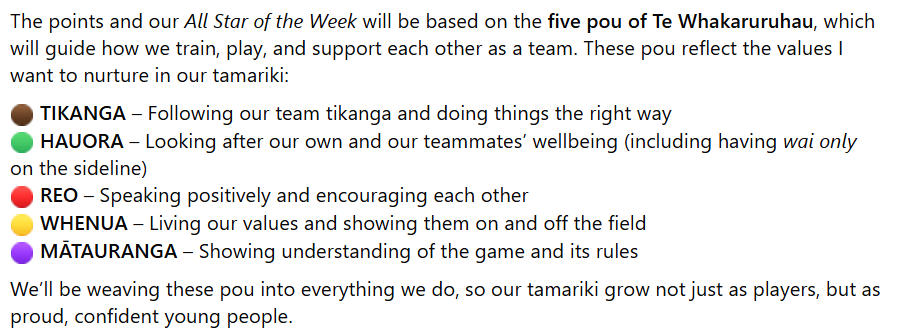Te Whakaruruhau in Action: A Coach’s Perspective
The Pou of Te Whakaruruhau was developed to support Te Whare Tapa Whā — a holistic Māori model of health and wellbeing. Te Whare Tapa Whā is often described as a wharenui, where each wall represents an essential dimension of wellbeing. The Pou (pillars) of Te Whakaruruhau strengthen and connect those walls, creating balance, resilience, and a strong foundation.
In sport, when the call goes out for coaches, it’s not unusual for only a handful of parents to step forward. Many feel underqualified or unsure if they have the skills needed for the responsibility that comes with coaching. But every now and then, someone steps into this space with a fresh lens and sees coaching not just as skills, drills, discipline, or winning, but as an opportunity to grow, educate, and positively influence tamariki and their whānau.
This was the case for one local sports team. Instead of focusing on scores and trophies, the coach introduced the five Pou of Te Whakaruruhau as the foundation for team culture and development. They guided the way players learned, connected, and celebrated each other. Even weekly awards reflected this shift — the “All Star of the Week” recognised players who demonstrated the Pou both on and off the field.
A message from the Coach to the whānau
The change was striking. Tamariki responded with pride and began making conscious choices — in their games, at home, and in their friendships. Parents noticed the difference too:
““Last season, our son was always ready to fight. This year, he’s focused on the game. He wants to uphold the tikanga of the team. It’s a positive shift that we’ve noticed.””
On the sidelines, encouragement replaced pressure. Whānau celebrated growth over winning, and the scoreboard became less important than the joy of playing. The tikanga of the team began to ripple out, shaping whānau life beyond the field.
Te Whakaruruhau became a living, breathing expression of Pae Ora:
Mauri Ora – Tamariki stood taller, with confidence and belief in themselves
Whānau Ora – Parents, siblings, and cousins became part of the kaupapa.
Wai Ora – The field became a safe space for physical activity, connection, and wellbeing.
For parents, it was a reminder that coaching has an impact far beyond the scoreboard. Done well, it shapes attitudes towards sport, strengthens social wellbeing, and creates systems change at the most grassroots level — from the sidelines to our homes.
And if you ask how we acknowledge our young ones? Sometimes it was the tamaiti who filled up a teammate’s water bottle, who reminded their mate to take a breath, or who offered encouragement on the field, who celebrated the achievements of the other team.
That’s Te Whakaruruhau in action.
That’s coaching with culture.
That’s change.


